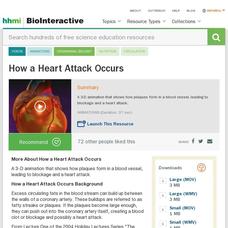SciShow Kids
Why Do We Burp?
Everybody does it! But why does it happen? Jessi gives you a look at your digestive system, to discover why we sometimes get a case of the burps.
Food Farmer Earth
Alan Kapuler: A Visionary's Blend of Science, Ideas, and Humanity
Explore the influential life and thoughts of Alan Kapuler, as he discusses the impact of monoculture on society and the importance of agricultural diversity. Learn how his scientific insights aim to foster a more sustainable and humane...
TED Talks
TED: What if we eliminated one of the world's oldest diseases? | Caroline Harper
Thousands of years ago, ancient Nubians drew pictures on tomb walls of a terrible disease that turns the eyelids inside out and causes blindness. This disease, trachoma, is still a scourge in many parts of the world today -- but it's...
World Science Festival
Science, Life, and Purpose: a Conversation With Francis Collins and Brian Greene
#BrianGreene #FrancisCollins #livestream Francis Collins – leader of the Human Genome Project, Director of the National Institutes of Health across three presidential administrations, and President Biden’s newly appointed Science Advisor...
Curated Video
What is Apathy? How To Break Past It.
Apathy is one of those mental states that can be very debilitating. You really don’t care about anything. Apathy can be defined as reduced motivation to engage in goal-directed activities across 3 domains: Initiative, Interest and...
SciShow
Cherenkov Radiation : Particles Faster Than the Speed of Light?
In something like water, particles like electrons can beat light in a race - and cause a blue glow to prove it.
Brainwaves Video Anthology
Douglas Mennin - Chronic Anxiety & Mood Disorders
Whether it is the rising sense of dread as a heart beats furiously and unexpectedly, the vivid memory of a painful event that occurred long ago but is not easily forgotten, or the sharp craving of a substance that seems so certain to...
Brainwaves Video Anthology
Ira Flatow - Teachers Make a Difference - My 7th Grade Teacher
Ira Flatow is the host of Science Friday, bringing 2 million radio and Internet listeners a lively, informative discussion on science, technology, health, space and the environment. Ira is president of Science Friday, Inc. and founder...
Brainwaves Video Anthology
Douglas Mennin - Teachers Make a Difference - Judy Cook & Rick Heimberg
Whether it is the rising sense of dread as a heart beats furiously and unexpectedly, the vivid memory of a painful event that occurred long ago but is not easily forgotten, or the sharp craving of a substance that seems so certain to...
Science360
Check out the assembly line of the future!
There's no shortage of ideas about how to use nanotechnology, but one of the major hurdles is how to manufacture some of the new products on a large scale. With support from the National Science Foundation (NSF), UMass Amherst chemical...
Brainwaves Video Anthology
Lucien Vattel - Learning Through the Heart
Lucien Vattel is a leader and visionary in educational game development, research, and curriculum, and a designer and producer of over a dozen distributed educational games with over 14 years of experience on a wide variety of projects...
World Science Festival
Cool Jobs: The Medical Ecologist
Cool Jobs: Meet the people with the coolest jobs in the world. Medical ecologist Dickson Despommier describes the Vertical Farm Project, a movement to promote urban renewal while producing a sustainable food supply. The project is a...
California Academy of Science
Solutions to Human Impacts
The phrase think globally, act locally inspires scholars to address pollution. After learning about invasive species, nutrient pollution, and dead zones, discussion questions help scholars link the concepts. They then apply knowledge of...
TED-Ed
What Did Dogs Teach Humans About Diabetes? diseases
For thousands of years people recognized the symptoms of diabetes, but it wasn't until the early twentieth century that a treatment was finally discovered. This video explores the Nobel Prize winning scientists' whose work with...
TED-Ed
How to Sequence the Human Genome
Every human is unique, from our thoughts and actions to our DNA. Scientists spent billions of dollars and over a decade to map the human genome, the sequence of DNA within one human being. Since the project was completed ten years ago,...
Howard Hughes Medical Institute
How a Heart Attack Occurs
Heart disease causes more deaths in both men and women in the United States than any other factor, buy many people don't fully understand what causes a heart attack. A brief animation demonstrates the slow buildup of plaque, a blockage...
TED-Ed
Under the Hood: The Chemistry of Cars
Ladies and gentlemen, start your engines! Explore the cumbustion reactions driving the world's automobiles and the chemical solutions used to keep their engines cool with this fun instructional video.
TED-Ed
How Do Germs Spread (and Why Do They Make Us Sick)?
Much the chagrin of mothers around the world, germs are everywhere; it's unavoidable. Learn how these microscopic invaders have evolved different ways of spreading from one host to another with this short instructional video.








